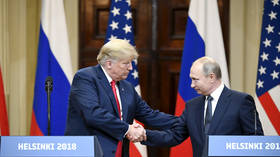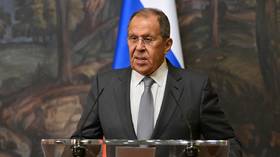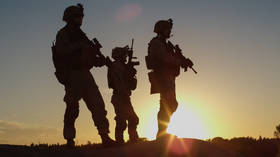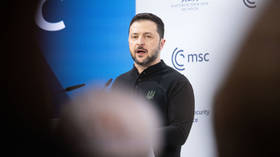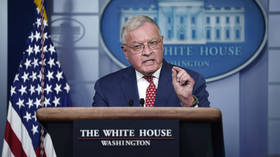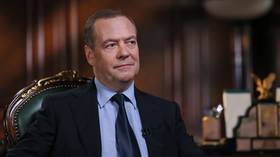World Cup mascot creator: ‘When I learned they picked my design I was so happy I cried!’
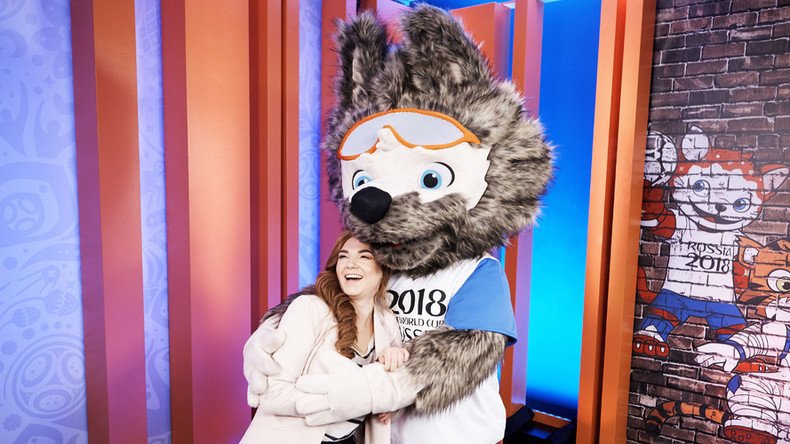
The student who created the design for the official FIFA World Cup Russia 2018 mascot has revealed her emotions upon learning her proposal was successful and how she hopes it will change perceptions of Russia.
The student who created the design for the official FIFA World Cup Russia 2018 mascot has revealed her emotions upon learning her proposal was successful and how she hopes it will change perceptions of Russia.
We’d like you to say hello to a new friend: Zabivaka the wolf! 🐺
— FIFA World Cup (@FIFAWorldCup) October 21, 2016
The Russian people have chosen him to be their 2018 #WorldCup mascot! pic.twitter.com/zVTjBDPNQv
Graphic design student Ekaterina Bocharova created a wolf design which garnered 53 percent of a nationwide vote to become the official World Cup Russia 2018 mascot. The figure was subsequently named ‘Zabivaka’, which means ‘the one who scores’ in Russian and is rooted in the Russian verb ‘to score’ (zabivat).
Speaking exclusively to RT Sport, Bocharova said she was inspired by a love of animals, in particular her pet dog, and that she is baffled by how to deal with her newfound fame.
“The idea came to me after I saw the wolf in the list of possible mascots for the World Cup. I love animals very much, especially dogs and wolves,” the 21-year-old said.
“That’s why I thought that it would be easier for me to work with the wolf. Plus my pet dog – a toy terrier named Tyson – gave me added inspiration.”
“I did put all my love for my pet in this character, and I wanted to share it with the entire world. And I wanted people to love Zabivaka just as much.”
“He is fluffy and has kind eyes”, said Ekaterina Bocharova, student who designed the #WorldCup mascot. More here: https://t.co/CJr0YVyBhZpic.twitter.com/6zVUoler3g
— FIFA Media (@fifamedia) October 21, 2016
Bocharova, who studies in her home city at Tomsk State University, first learned of her success when it was revealed on television chat show ‘Vecherniy Urgant’, hosted by comedian Ivan Urgant on Saturday.
Special guests Russian Football Union chief Vitaly Mutko and Brazilian football legend Ronaldo were in attendance to see the wolf design beat off competition from a cat and a tiger to be selected by Russian football fans during a month-long voting stage.
“I learned about it on the TV show, where it was announced. I was incredibly happy, and even started to cry,” Bocharova said. “I received so much attention after that. I felt like I woke up famous the next day. The media contact me every day now. I don’t even know how to react to it.”
READ MORE: Russian football fans choose 'Zabivaka' the wolf as mascot for World Cup 2018
Mutko, who is also a member of FIFA’s executive committee, said Zabivaka would “inspire supporters” as mascot.
“[Russia] has decent players, including [Fyodor] Smolov, [Artyom] Dzyuba, [Igor] Akinfeev, as well as youth players who have come through the team. So, the wolf suits a lot of our guys and will personify the squad,” he said.
Traditionally, Russia is strongly associated with the bear, which has become something of a national symbol. Zabivaka’s predecessor for the Brazil 2014 World Cup was Fuleco the Armadillo, who represented the endangered status of the animal in Brazil and was aimed at helping to raise awareness about their vulnerability.
READ MORE: Brazilian model welcomes World Cup Russia 2018 mascot with revealing snaps (PHOTOS)
Bocharova hopes that Zabivaka will alter this perception and remind others that Russia’s vast terrain is home to an array of wildlife.
“I don’t think that the wolf will ever replace the bear in the minds of people when they think of Russia. But at least my mascot will help them learn that the bear is not the only animal we have in Russia,” Bocharova said.
However, despite the design being the brainchild of Bocharova and the mascot being expected to have huge earning potential through merchandise and advertising, TASS reported that the student received just $500 for her efforts and that FIFA are now the sole proprietors of the rights to Zabivaka.
The 2018 Russia World Cup will be played in 12 venues in 11 different Russian cities from June 14 to July 15.


